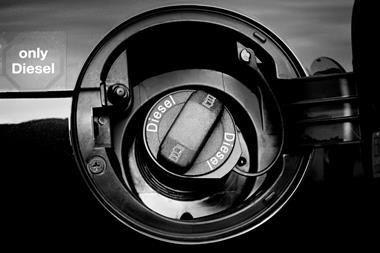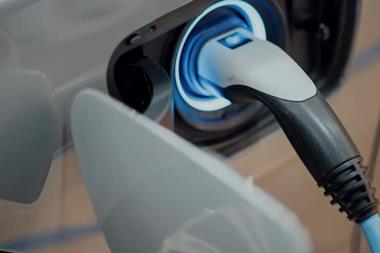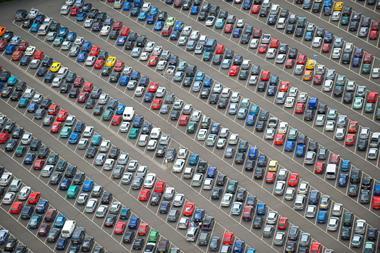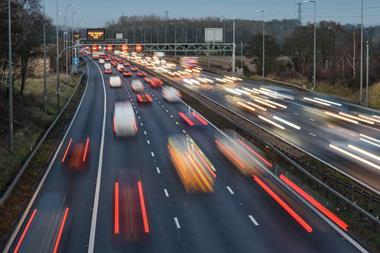The AA has called for the industry to consider the introduction of a price regulator acting as an honest broker between fuel suppliers, retailers and consumers. The suggestion comes as average UK diesel prices have risen to 142.80ppl, a fifth of a penny shy of the record set in May last year (143.04ppl), according to the AA’s February Fuel Price Report.
Over the past month, petrol rose 1.46ppl and now averages 135.00ppl – still 2.43p off the record. Since the start of the year, when petrol averaged 132.25ppl, the monthly fuel bill for a family with two petrol cars has risen £5.84.
The report said petrol prices would have been 1.5p higher had the pound’s value not strengthened from around $1.53 to $1.58 over the past month. Even so, the rise in NW Europe wholesale petrol from $900 a tonne at the end of November to over $1,000 a tonne at the beginning of February is now overwhelming the stronger pound.
Over the past month, the average price of diesel has gone up 0.8ppl, rising from 141.90ppl in mid January.
“The UK’s rate of inflation may have fallen but that comes as cold comfort for consumers and businesses that depend on their vehicles and see pump prices nearing last year’s records,” says Edmund King, the AA’s president.
“The fact of the matter is that, in a period of stagnant wages, petrol costs 23ppl more and diesel 29ppl more than in February 2010, when fuel price rises picked up pace. A typical 50-litre petrol refill now costs £11.50 more and filling an 80-litre commercial van tank with diesel has risen £23.20.
“In inflationary terms, that is a 20.5% rise in two years for petrol and a 25.6% increase for diesel over the same period. Consequently, we will be reminding the Chancellor before the March Budget that his 3p fuel duty increase earmarked for 1 August should be scrapped if these high pump prices persist.
The report reveals that price differences between towns have grown to as much as 5ppl for the cheapest petrol, in counties such as Nottinghamshire and Kent. In Europe, manipulative pump pricing has led to countries like Austria and Denmark extending the role of their domestic energy regulators to oversee road fuel pricing.
King said that in Austria, all fuel stations are legally obliged to log their prices and any changes on an official database. At midday, the database is closed to view and fuel stations register a price during a short ‘window’. This stops retailers matching competitors with higher prices. Once the database is re-opened to view, retailers are only allowed to reduce prices during the day and must notify the database within 30 minutes of each change.
In Denmark, a list price is published the evening before, based on the movement of the wholesale price. The list price becomes the legal maximum which is registered on a national price database and comes into force at midday. Retailers are allowed to lower the price but have to notify the database of the change. The Danish system not only resets all prices daily to the same level but gives drivers the opportunity to spot a likely increase and buy at the previous day’s adjusted prices before the market is reset.
In both countries, the consumer is empowered to report any violations by taking a picture on a mobile phone and sending it to the enforcing authority.
“These countries don’t benefit from the UK’s pioneering pump price transparency, created from the logging of fuel card transactions at petrol stations and made available online and via mobile phone. However, the additional benefit of a system that shakes up prices at midday and could reduce the price jams blighting so many UK towns could become attractive,” says Edmund King.
“More important is the growing involvement of a regulator in the road fuel market. Although the AA’s preference would be for greater market transparency, particularly comparing movements in the wholesale price with those at the pump, a regulator acting as an honest broker between fuel suppliers, retailers and consumers may be a role worth exploring. With independent retailers often complaining about how much they are charged for fuel and the pricing of other groups in the market, a regulator offers a potential solution.”
A regional comparison of UK fuel prices shows that the highest average price for petrol is being charged in Northern Ireland at 135.9ppl, 1.7p dearer than the lowest, in the North (134.2p). Diesel is also most expensive in Northern Ireland, averaging 143.5ppl, compared to 142.3p in the cheapest regions, the North and Yorkshire and Humberside.
Drivers on islands around Scotland and the Isles of Scilly are due to start benefiting from a 5p fuel duty rebate from 1 March. Community pumps, a growing source of fuel in remote areas of Scotland, are already passing on the saving with two in Shetland cutting prices last week. King said the lack of transparency between wholesale and pump prices still means that it will be difficult to gauge how much of the rebate is passed on by suppliers to retailers or retailers to drivers.






























No comments yet